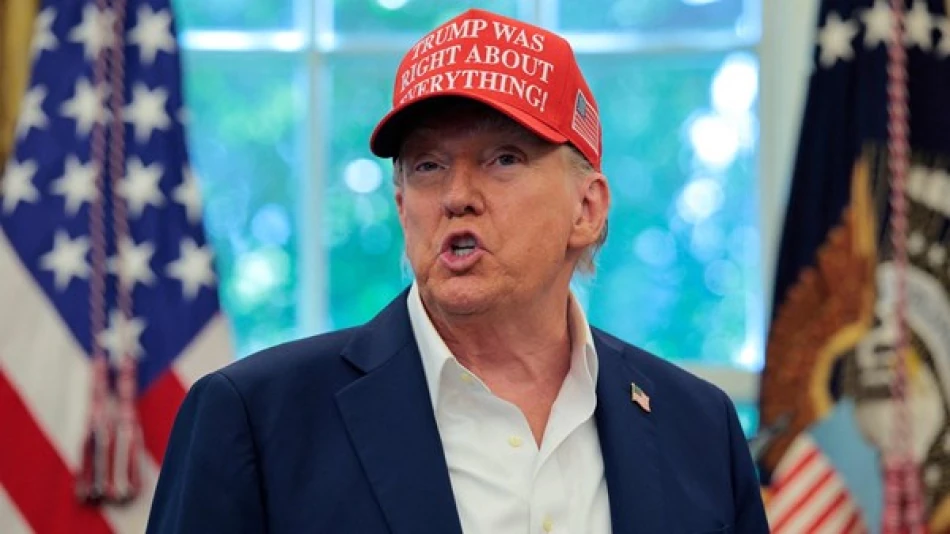
Trump Hints at Potential Sanctions on Russia Amid Ongoing Tensions
Trump Sets Two-Week Deadline for Ukraine Peace Progress, Threatens "Massive" Russia Sanctions
President Donald Trump has given himself a two-week window to determine whether his diplomatic efforts to end the Ukraine war can yield meaningful progress, signaling that failure could trigger severe economic penalties against Russia. Speaking from the Oval Office Friday, Trump expressed dissatisfaction with current peace negotiations and hinted at a binary choice: impose "massive sanctions" or step back entirely from mediation efforts.
Diplomatic Stalemate Persists Despite Alaska Talks
Trump's timeline comes after his recent discussions with Russian President Vladimir Putin in Alaska failed to produce the breakthrough he sought. The American president has been unable to convince Putin to meet directly with Ukrainian President Volodymyr Zelensky, a key obstacle to advancing substantive negotiations.
"There's a tremendous amount of hatred there," Trump told reporters, acknowledging the deep animosity between the warring parties. "We'll wait and see what happens. I think within two weeks, we'll know which way I'm going."
High-Stakes Gambit Reflects Trump's Transactional Approach
The two-week ultimatum represents classic Trump dealmaking strategy—creating artificial deadlines to force action from reluctant parties. However, this approach carries significant risks when applied to a conflict that has claimed hundreds of thousands of lives and reshaped global security architecture.
Trump's threat of "massive sanctions" suggests potential escalation beyond current economic measures, which already target Russia's energy sector, banking system, and key oligarchs. The alternative—telling both sides "it's your fight"—would mark a dramatic shift toward American isolationism that could embolden Putin while leaving Ukraine more vulnerable.
Market and Geopolitical Implications
Financial markets will likely watch Trump's deadline closely, as expanded sanctions could further disrupt global energy supplies and commodity chains. Russia remains a major supplier of oil, natural gas, and critical minerals, meaning enhanced penalties could ripple through inflation-sensitive sectors worldwide.
For European allies, Trump's binary approach creates uncertainty about continued American leadership in the conflict. The EU has already absorbed significant economic costs from existing Russia sanctions and Ukrainian refugee support, making sustained coordination with Washington essential for long-term strategy.
Historical Precedent Suggests Limited Options
Previous attempts at rapid conflict resolution through ultimatums have produced mixed results. While Trump successfully brokered the Abraham Accords during his first term, the Ukraine situation involves deeper historical grievances and territorial disputes that resist quick fixes.
The president's acknowledgment that he's "not satisfied" with any aspect of current peace efforts reflects the intractable nature of a conflict rooted in competing visions of European security architecture—issues that predate the 2022 invasion by decades.
Most Viewed News

 Layla Al Mansoori
Layla Al Mansoori






